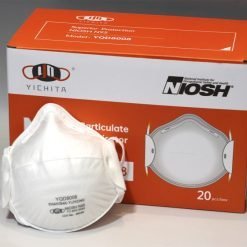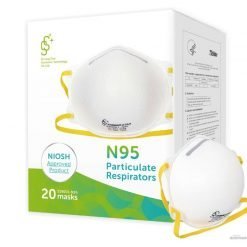Studies have shown that N95 masks are very effective against COVID-19. Now, researchers at Colorado State University say N95 is an effective filter for wildfire smoke.
The study, published in the journal GeoHealth, showed that N95 was effective in reducing exposure to particulate matter in smog and reducing the risk of asthma, lung disease and other respiratory exacerbations.
Other types of masks now commonly used to combat COVID-19, including surgical masks, cotton masks and synthetic masks, are much less protective against smoke particles than N95, the study found.
The Corderos team studied the effectiveness of each mask in filtering air pollution particles and preventing leaks. The researchers then simulated how each mask would behave during the 2012 Washington state wildfire season, taking into account how many people might wear them and for how long.
In a large number of trials, N95 masks were found to reduce smog-related hospitalizations by 22 to 39 percent. Surgical masks reduced hospitalizations by 17 percent; Synthetic masks by 13%; And cotton masks by 6%.
Cloth masks
“Cloth masks don’t provide that much protection from wildfire smoke,” Kodros said. “They can’t resist too many particles coming in, and they tend to be poorly sealed. The N95’s high protection depends largely on the airtight seal it forms around the mouth and nose, and how long it is worn. Studies have found that the more tightly sealed the mask, the longer it will be worn and the more effective it will be.








